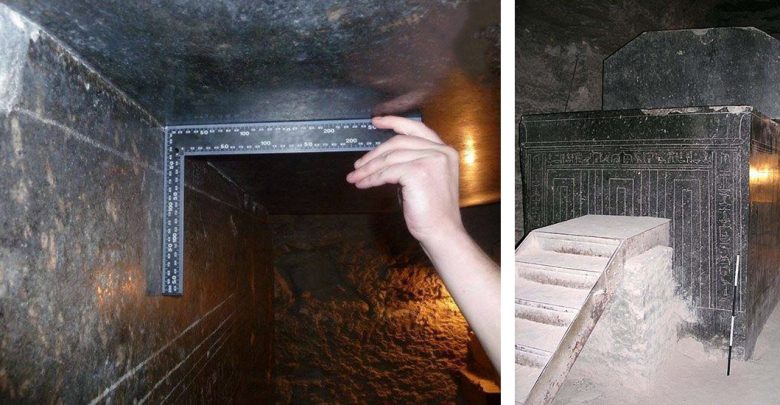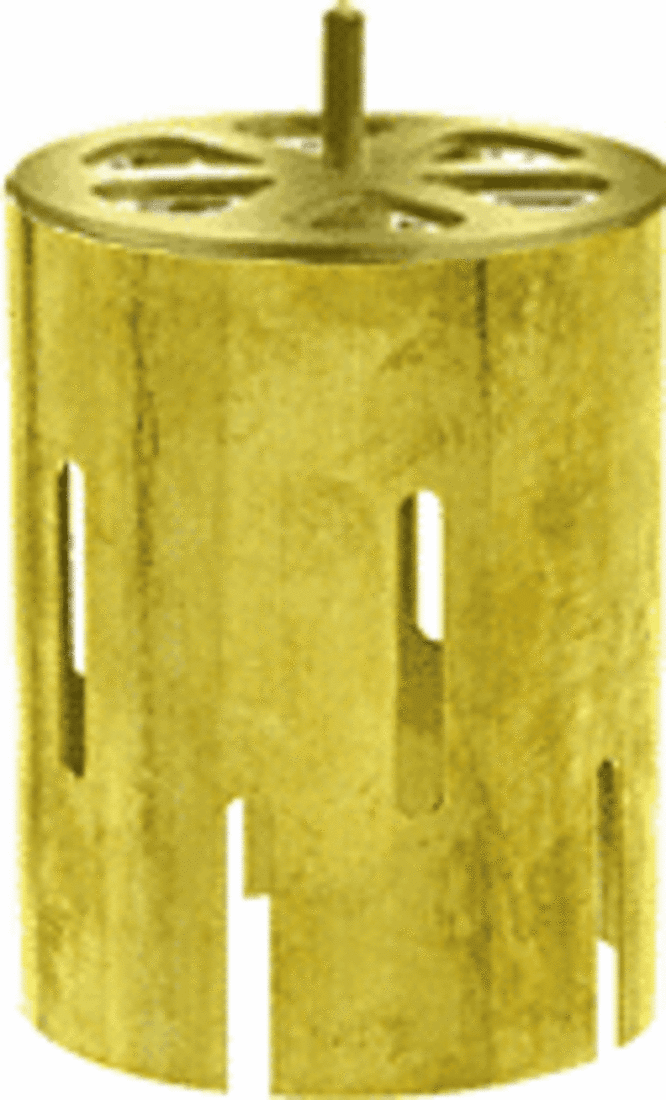
Posted on 12/03/2019 12:54:33 PM PST by wildbill
Most people know of the great construction achievements of the dynastic Egyptians such as the pyramids and temples of the Giza Plateau area as well as the Sphinx. Many books and videos show depictions of vast work forces hewing blocks of stone in the hot desert sun and carefully setting them into place. However, some of these amazing works could simply not have been made by these people during the time frame that we call dynastic Egypt.
Up until the 7th century BC there was very little iron present in Egypt, as this material only became commonly used once the Assyrians invaded at that time; in fact, the ancient Egyptians regarded iron as an impure metal associated with Seth, the spirit of evil who according to Egyptian tradition governed the central deserts of Africa. A few examples of meteoric iron have been found which predate the Assyrians, but this consists largely of small ornamental beads.
(Excerpt) Read more at ancient-origins.net ...
Years ago, when I was in middle school I saw a video with a knock off line that stones in S. America were softened with a flower. Don’t remember much else about the movie, but did find more references with convincing (to me) evidence that the conventional explanation has a few lacking points.
http://davidpratt.info/andes2.htm
The pictures are striking.
DK
But soon we will be able to 3D print large blocks in place with microscopic precision.
The Last Glacial Period started about 115,000 years ago, shortly after their "progressives" banned any technology that released carbon dioxide...
Most people couldn’t chop down a tree today with a saw or axe. Let alone know how to sharpen it.
I absolutely believe this is possible. They may have had a way to soften stone. The question would be how did they move some examples of these megaliths. Some would have had to be moved across sheer cliff valleys from the quarry and no roads or bridges to where they were erected.
Kind of an interesting site, scroll down to the “MINER BIRDS OF THE MONTANA” short article excerpt about softening stone. :)
http://www.spirasolaris.ca/index.html
“Fig. 5.7 A common ancient method of splitting stones was to make a series of small holes and then insert saturated wooden wedges which expanded and cracked the rock. Left: Machu Picchu quarry. Right: Aswan quarry”
Wouldnt one want to put dry wood in the holes and then add mositure?
Fascinating article.
One of the points in IIRC Von Daniken’s book, and it has been more than forty years since read...was that the economy required for a brute force old solution to just the manipulations and moving of the stones was far greater than those cultures had to devote to those projects.
DK
Forget about the smooth outsides of “sarcophagi” in the Serapheum Lets assume you can get hordes of diorite rock chippers banging away for years.
But Try to hollow out huge “sarcophagi” with granite hammers and then achieve plumb sides, edges and squared corners inside. As well as finely fitted lids that form a seal?????
I don’t see how it could be done because there wouldn’t be room to swing a hammer with any force. And how many workers could you get into such a cramped workspace to hammer at the same time??/ Maybe some kind of acid might work??
Maybe someone could post a picture or two of those granite boxes.
A lathe cannot produce anything of a n indeterminate lumpy texture. Even the turnings are precise. Apply this thinkibg to other devices like a wood saw or metal saw, or a hand drill, ir a die for cutting threads on a rod.
High pressure water jets can cut hard metal, let alone stone MOH 6-7 or ceramics with MOH index of 8 or 9. Maybe they were able to create such water jets. That would seem to be a real possibility.
I have used ultrasonic tools to precisely machine silicon carbide with diamond grit slurry and a metal tool delivering the vibrations. I would think that given the ingenuity to design a rotary disk and/or vibrating tool tip that a water slurry of granite dust or sand (which is grains of quartz or zircon with a higher MOH) could be used to cut a thin slot into the massive stone. Such a slot would by its own action create a very precise planar surface on each side of the cut
These archaeologists simply have no practical imagination, not even as much as the cultures they are digging out. Even their nimbleness in the spiritual dimension is far less than that of the prophets who believed God and wrote the self-consistent Holy Bible. Dame Kenyon, who dug at Jericho, couldn't comprehend that the Bible tale of the fallen walls was true, (which later diggers proved to be so) not believing at all in a real Creator.
Using a slurry of granite dust as the grinding medium would, after a washing down and cleanup, not leave a smidgin of evidence as to how the cutting was achieved, would it?
Bunch of unimaginative dummies. That's probably the reason they can't find work anywhere else.
Good catch, I noticed that too. Yes I think you would want to swell after inserting. Similar to splitting with water, you fill the holes with water and let it freeze overnight a few times to split the rock.
The main mystery of the Serapeum is, since the stone isn't local to where it wound up (IOW, it wasn't mined en situ), how did they get the finished boxes inside there?

The world is doing that now.
I watched a fascinating interview of Elon Musk at a TED conference. Among his many achievements is his quest to build SpaceX in order to go to Mars. The interviewer asked him why rush, why not fix problems here on Earth and leave the space quest for a future time by others.
Musk pointed out that if he gives up the quest, others might not continue it. That the ancient Egyptians forgot how to build pyramids and other great monuments, and the Romans who built aqueducts soon forgot their technologies. He says it could happen to our modern civilization, that we could forget how to build and then revert to primitive states. He said after we went to the Moon we just sort of gave up for half a century. If he doesn't help push us along, we may never go to Mars. It doesn't take much for a civilization to decline and forget how to build.
Absolutely, and even more curious is how did they see to do it in the dark? There is absolutely no soot from torches or oil lamps on the ceiling.
I don't think this is true. I've watched many of these documentaries on ancient civilizations, and modern engineers say they can't duplicate many of the things done back then. Our largest construction vehicles couldn't lift and install the massive stones in ancient structures, and couldn't be fitted with the same precision. Many ancient carvings appear to have been cut with finer precision than modern computer-driven lasers, impossible to do by hand-carving to be symmetrical (left and right facial images for instance).
Yep, Symmetry is the big one. Even with a computer driven CNC machine this would be hard to get as exact as they did on some of that work.
The tube drill uses very hard fine carborundum particles to grind the hole. The particles imbed in the slots as the tube rotates and grind a circumferential slot. In the end, a perfectly round hole is cut and a perfect circular core is cut as well.
As the hole is cut, the soft brass is also eroded such that the slots are deep and there is a double layer of slots
That is, the 4000 + year old technology you describe using a fine very hard particle (sand) cutting medium is alive and well and in use in all glass shops that cut round holes in glass.
Four Inch Diameter Tube Drill

Using polished metal mirrors has been shown to work well enough at surprising depths. Also, the oils (olive oil, seed oils) used in ancient oil lamps were also very low producers of soot. Kerosene is a modern discovery, if memory serves was discovered in Poland (the discoverer had what turned out to be oil seeping out on his property, and his neighbors urged him to try to make vodka out of it; that could easily be a mythical detail).
http://oliveoilsource.com/asktheexpert/how-did-ancients-use-olive-oil-their-lamps
https://www.antiquelampsupply.com/type-of-oil-used-in-oil-lamps
I've wondered if anyone has ever measured the precision of the depth and sides of those hieroglyphs "carved" into some of those obelisks. They look like they were cut with a router.


Firstly, I don't think you'll ever find a consensus of modern engineers who will all agree. Some modern engineers might say it couldn't be done, but they are selected by the shows to prove the show's narrative. Think of the New York Times, and their "experts" that prove Trump is guilty of whatever.
The biggest single fact that the things were in fact done is that they are there.
Thousands of years old, just standing there, or toppled over by time or whatever--the modern engineer can say it is impossible--but the stone is there nevertheless.
It would better for them to say they don't know how to duplicate it today, not that it couldn't be done (because it WAS)--they don't know--is the final answer.
Disclaimer: Opinions posted on Free Republic are those of the individual posters and do not necessarily represent the opinion of Free Republic or its management. All materials posted herein are protected by copyright law and the exemption for fair use of copyrighted works.